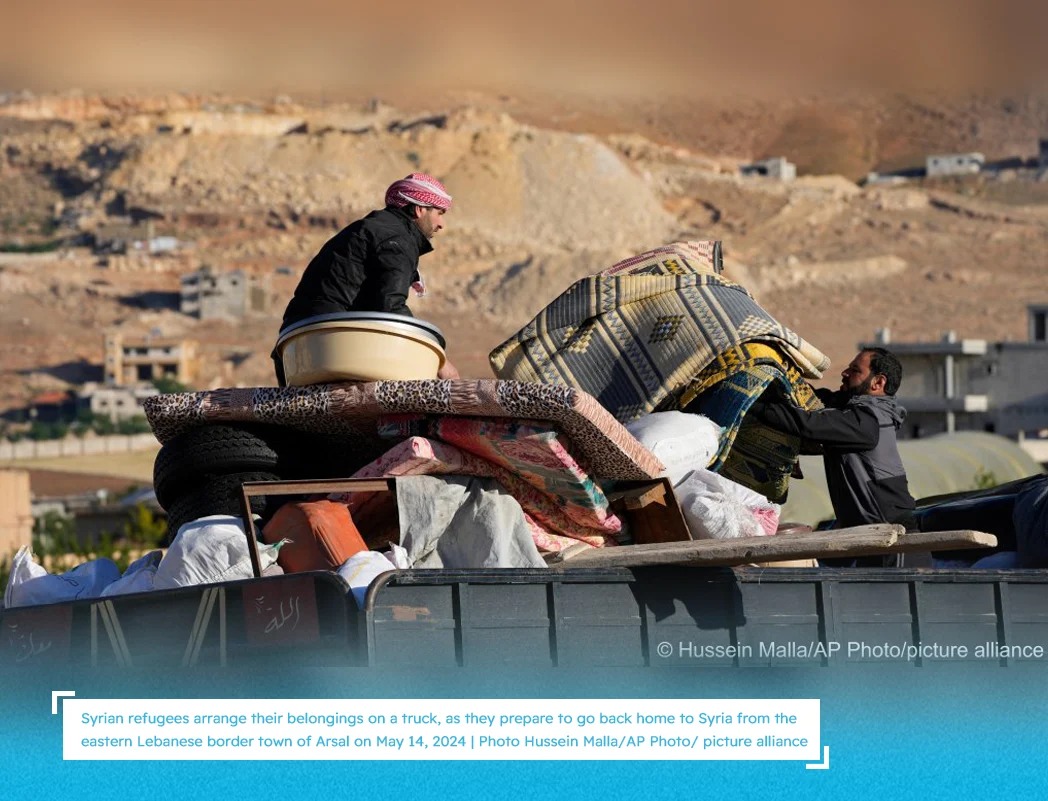After 13 years of war and 53 years of dictatorship, Syria has experienced a monumental shift with the fall of Bashar al-Assad’s regime, which culminated in his flight to Russia. Yet, for many Syrian refugees in European Union (EU) countries, the fall of the regime has been met with mixed emotions—celebration tempered by uncertainty as EU nations begin freezing the processing of Syrian asylum applications.
An Uncertain Future
Despite the end of Assad’s rule, the instability in Syria continues to deter refugees from considering an immediate return. The widespread destruction of infrastructure, absence of basic services, and ongoing violence compound their fears.
Syrian Media Outlets Call for Press Freedom in Post-Assad Era
Hala, 29, who recently arrived in Germany, shared her concerns with Syria TV: “Joy filled with anxiety” is how she described her reaction to the revolution’s victory. Hala fled Syria in 2015 after losing her family to systematic bombings by the regime. She emphasized that the fall of Assad is not enough to facilitate an immediate return. “Houses, hospitals, and infrastructure are destroyed. The economy is in ruins. Returning now would not bring peace of mind.”
Describing this period as “foggy,” Hala expressed the belief that remaining in host countries is essential to ensuring survival until Syria is genuinely safe. “We’ve sacrificed everything to reach safety, and for now, these countries are our best hope,” she said.
Concerns for Refugee Families
Ammar, 44, who has lived in Hamburg with his wife and five children for over a decade, echoed similar sentiments. While he celebrated the “liberation” of Syria, he expressed shock and dismay at EU decisions to freeze asylum applications.
“My children have built their lives here. Returning would expose them to cultural and societal challenges, not to mention the lack of safety,” Ammar said. He cited ongoing bombings, the absence of schools, and the lack of guarantees for security as major deterrents. Ammar reiterated his commitment to contributing to Syria’s reconstruction but emphasized that his family’s safety would remain his priority.
Hasty Decisions Criticized
Human rights organizations have strongly criticized the suspension of asylum applications by EU countries, describing the move as premature. Germany, the EU’s largest host of Syrian refugees with nearly one million residents, was the first to freeze applications, with other countries quickly following suit.
Amnesty International’s Migration Advocacy Officer labelled these measures as “hasty,” urging governments to prioritize the dignity and safety of refugees over political expediency. The UNHCR also called for “patience and vigilance” in ensuring voluntary, safe, and sustainable returns.
Rahaf, 30, who recently arrived in France, shared her frustration with Syria TV: “I don’t know what the new government is thinking. Hay’at Tahrir al-Sham is still classified as a terrorist organization. Who will guarantee my safety if the situation changes?”
Rahaf criticized the EU for its lack of consideration for Syria’s precarious state, calling for more time to verify the country’s stability. “The decision to stop applications is premature. Illegal and armed groups still pose a threat. We need comprehensive guarantees before making such fateful decisions,” she said.
Legal and Ethical Implications
Syrian legal expert Osama Khadro emphasized that European countries are bound by the Geneva Convention, which prohibits the forced return of refugees to unsafe conditions. “Refugees who have been granted asylum cannot be deported or have their applications arbitrarily rejected. This is established international law,” he explained.
While some EU governments argue that Syria is becoming “safe,” experts and activists counter that the situation remains volatile. Returning refugees to a country still plagued by instability would violate both legal protections and moral obligations.
A Long Road Ahead
As Syria grapples with rebuilding from decades of conflict, refugees like Hala, Ammar, and Rahaf remain caught in a limbo between their homeland and host countries. The end of Assad’s regime marks a significant milestone, but for millions of displaced Syrians, true victory will only come with tangible guarantees of safety, stability, and dignity upon their return.
This article was translated and edited by The Syrian Observer. The Syrian Observer has not verified the content of this story. Responsibility for the information and views set out in this article lies entirely with the author.


